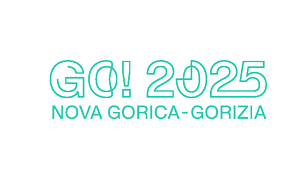This paper proposes a reexamination of avant-garde artistic practices in the Northern Adriatic region through an ecocritical and ecofeminist lens, by exploring the intersections of art, science, and ecology. Historically marginalized as peripheral or fragmentary, avant-garde movements in East-Central Europe, including Slovenia and the broader Adriatic region, have been overlooked within dominant Western art historical narratives. By shifting the focus to the Adriatic Sea – a space of cultural, ecological, and geopolitical interconnectedness – this contribution aims to construct an alternative, eco-centric narrative of the region’s avant-garde. The waterscapes of the Adriatic offer a fertile metaphor and material reality for rethinking the transgressive potential of the avant-garde in relation to contemporary ecological crises. Drawing on ecofeminist and posthumanist theories, the paper interrogates the role of water as both subject and medium in avant-garde art, emphasizing its relational and transformative properties. By engaging with the artistic strategies of fluidity, hybridity, and interconnectedness, the contribution proposes an alternative art history framework that integrates spatial and material turns in humanities scholarship.
Focusing on three key periods – the intermedial works of interwar historical avant-garde, the performance art of the neo-avant-garde of the post-WWII era, and contemporary ecological art and science projects from the Northern Adriatic region – the study clusters works into three thematic areas: (1) mythological and poetic engagements with the Adriatic; (2) new relationalities with nonhuman entities; and (3) critical responses to urgent environmental issues such as pollution and biodiversity loss. These clusters highlight how avant-garde practices transcend traditional boundaries, forging connections between art, ecology, and society. Ultimately, this paper contributes to the decolonization of art historical methodologies by adopting a transdisciplinary, transnational, and eco-critical perspective, demonstrating how avant-garde art in the Adriatic region offers a relevant context for reimagining cultural narratives, ecological resilience, and our place within a more-than-human world.
Kristina Pranjić is Associate Professor at the University of Nova Gorica’s School of Humanities and Research Centre for Humanities. Her work focuses on avant-garde and intermedia art, ecocriticism, cultural criticism, and the intersections of art and science. She has published widely, co-edited several volumes on the avant-garde, and is the principal investigator of the upcoming project Adriatic Avant-Garde: Eco-Transversal Remapping of Northern Adriatic Avant-Gardes at the Research Centre of the Slovenian Academy of Sciences and Arts (ZRC SAZU), in collaboration with the University of Graz.
She has organised three international conferences with artistic programmes and co-edited the proceedings: The World as Objectlessness, Cosmic Anarchism, and Avant-garde and the End of the World. She is the author of a monograph on the Yugoslav avant-garde (Jugoslovanska avantgarda in metropolitanska dada, Sophia, 2024), which will also appear in English with De Gruyter Brill in 2027.
She studied Comparative Literature and Russian Language and Literature at the University of Ljubljana, where she also earned her PhD in Slavic Studies. She has conducted research at the University of Konstanz, the University of Belgrade, and Paris 8 University, and has taught at the University of Klagenfurt.
Back








